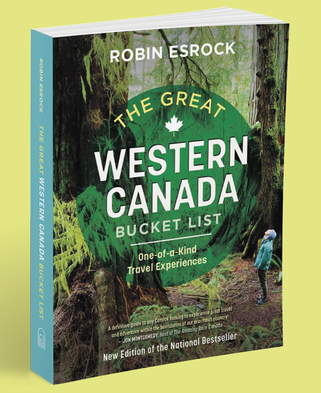|
Six months ago, I wrote a blog post that we are officially living in the best of times, and the worst of times. This balance has almost certainly tipped. For fifteen years I’ve believed in the power of travel to spread inspiration, connection, and knowledge. COVID-19 didn’t just come for my industry, it came for everyone. There have however been winners. The System (sometimes known as The Man or The Matrix) has long fought against citizens who are inspired, connected and knowledgeable. It distracts us with sport, bamboozles us with Terms and Conditions, divides us with electoral colleges and by ethnicity, and builds high walls of exclusivity around the increasingly inaccessible rich and powerful. Over the years, there’s been a lot of water under the bridge, and so if you’re tuning in for paradise, I hope you’ll forgive me this one post of protest. On his best day, the most powerful man in the world is a narcissistic, racist imbecile with the intellect and self-control of a three-year-old. The tech genius who created our most powerful platform of modern communication believes it’s morally acceptable and better for shareholders to spread false information that incites violence, massacres, fear and discrimination. Herd immunity didn’t work out as nearly as well as herd mentality when it came to dealing with a pandemic that experts have been warning governments about for years. An understandable rush to avoid the worst has resulted in the loss of hundreds of millions of jobs, a crippled global economy, and the utter devastation of one of the few industries that creates a net positive for human experience, namely, tourism. A billion-plus school-kids have been forced home, adapting to dystopian and enforced social distancing, germaphobic neurosis, and a new normal of 24-hour tracking that will never, pinkie-promise, be used for nefarious purposes. Formally stable geo-political forces are being undermined, resulting in democratic abuses, political disappearances, suspicious arrests, bold assassinations, and previously unimaginable calls for state independence and annexations. Racist and anti-Semitic attacks have dramatically increased, with the ignorant emboldened by deeply flawed leadership, grotesque echo-chamber information bubbles, and our own ever-present reptilian dark side of humanity. Unarmed people of colour are being routinely targeted by law enforcement forces operating above the law, while the important fifth estate of journalism has been targeted by those in power even as the traditional media model suffers an economic meltdown. All the while, cyclones and monsoons, floods, wild-fires, melting icecaps and acidic oceans continue to fester unabated. Society has been locked down, pressure cooked, and force-fed non-stop inflammatory misinformation. We are spilling into the streets with a new level of frustration, anger, rage and confusion. Yes, SpaceX and NASA just launched humans into space at a fraction of the cost, but there was the bigot Trump, staining the occasion like the repulsive spores of a reeking mushroom fart. Celebrities banded together to remind us we’re all in this together, albeit not all in large, opulent mansions with Jacuzzis and cigars (I really think it’s time for Arnold Schwarzenegger to not be back). Neighbourhoods and communities have banded together to flatten the curve with impressive dedication and devotion, considering we long ago stopped wondering why Winnipeg is not Montreal, Vancouver not New York, or what the curve was about in the first place. Front line workers showed us the colour of true heroes, and just about all of them don't carry weapons. Believe me, this is not the post I thought I’d be writing at the gateway to summer, 2020. I was expecting to be planning an epic family adventure much like last summer’s incredible journey to Atlantic Canada. Perhaps the fact that the small-ship company we sailed with went bankrupt shortly afterward amid accusations of fraud - and later sunk a Venezuelan navy vessel - was a warning shot over the bow of the year to come. A year of drowned dreams and dashed prospects. At least half a year of it, anyway. And so today, I put my intention forward for the next six months. Being honest to myself, I can’t imagine how things will improve in the short term. I can’t imagine how, given the civil unrest, fear and unemployment, there will be much to celebrate this summer. My plan is to take two spontaneous road-trips into some of my favourite regions of British Columbia, and hope for the best. I predict a rejuvenated sense of local, provincial and state pride, because unlike banks getting government bail-outs under the auspices of being too-big-to-fail (and cashing it all the way into executive bonuses), the small businesses that drive the tourist economy are too important to fail, and we won’t let them. By the fall, the true cost of the Covid-19 pandemic, and the economic panic that accompanied it, will come home to roost. It’s not going to be pretty, but it’s going to be short-lived. Because come November, Americans beyond the 35% of rabid Trump supporters (the people who wouldn’t believe he was guilty even if Trump stood with a smoking gun over their own bullet-ridden bodies) will vote the idiot out. And while Biden doesn’t quite bring with him the fresh hope of a new era, he does represent a return to the day when adults were left in charge of nuclear arsenals. The new president, supported by a blue Congress, will dismantle four years of Trump in a matter of months. Laws will be passed at a breakneck pace restoring environmental regulations, restricting unchecked industry, and funding vital social programs. And while this is all great for Americans, the impact will flow across the border into Canada, and around the world. Progressive and inclusive ideas will flood the world with such force it will sweep away the last of the despots. The caged tigers of Russia and China won’t be put back in their cages, instead they will be invited to participate under international rules of law that are fair, free, and enforced. It will be the honeymoon of Obama's first term, only this time, liberal progressives won’t eat nearly as much shit, and they will know how low the other party is willing to sink. For Trump didn’t drain the swamp of Washington, he increased the size of the corrupt swamp to cover much of the known world. The pace of 2021’s land reclamation will be both invigorating for the economy, and re-energize the global soul. And we will awake as if from a dream, having learned vital lessons about the empty promises of tanned vanities, the nauseous cost of exploiting both environment and consumers, and just how important it is to know how information is gathered, verified and disseminated. Perhaps above all else, we will recognize the importance of washing our goddamn hands, and not going out when we're sick. I’ll check back with you in six months to see how it all panned out.
0 Comments
Be grateful you’re not a chef-owner who’s worked tirelessly to recently open a restaurant. Be grateful you’re not a server at that, or any other restaurant. Be grateful you’re not a school kid hoping to improve your grades for college. Be grateful you’re not a college kid, in debt, hoping to graduate into a hungry job market. Be grateful you’re not a museum, aquarium, zoo, or tourist attraction. Be grateful you’re not a tourist guide, tour operator, or concierge. Be grateful you have nothing to do with the hotel industry. Be grateful you’re not a band on tour. Be grateful you’re not a concert promoter. Be grateful you’re not involved with a folk, arts or music festival. Be grateful you’re not a sports professional. Be grateful you haven’t spent your whole career training for the 2020 Olympics Be grateful you haven’t spent your whole career training for the 2020 anything. Be grateful you don’t work in a hair or nail salon. Be grateful you don’t have lots of children to school, entertain and feed. Be grateful you’re not single and alone. Be grateful you don’t own a martial arts studio. Be grateful you don’t own a book shop, gift shop, or boutique. Be grateful you don’t need to visit the Emergency Room. Be grateful you're not a massage or physiotherapist. Be grateful you’re not an artist who landed a big gallery break. Be grateful you’re not a gallery. Be grateful you don’t pay an exorbitant amount of commercial rent. Be grateful you don’t have an unmanageable mortgage. Be grateful you don’t live month to month, or week to week. Be grateful you’re not supporting your family who live in another country. Be grateful you’re not a refugee. Be grateful you’re not completely invested in the stock market. Be grateful you’re not caught up in a civil war, locust plague or ethnic violence. Be grateful you’re not a filmmaker stalled in production. Be grateful you’re not a retail store. Be grateful you’re not an event or wedding planner. Be grateful you’re not in recruitment. Be grateful you’re not working in media. Be grateful you don’t work in the casino industry. Be grateful you don’t work in the cinema industry. Be grateful you’re not in the fashion retail industry. Be grateful you’re not in the convention industry. Be grateful you don’t have to sell advertising. Be grateful you don’t work in a crisis-hit senior’s home. Be grateful you don’t work in a stadium or venue. Be grateful you don’t work in the oil industry. Be grateful you don’t work in the airline or airport industry. Be grateful you’re not neurotic or obsessed with conspiracy theories. Be grateful you don’t own a gun, or see any reason to do so. Be grateful you don’t have to worry about starving. Be grateful you don’t have to worry about being cold. Be grateful you don’t believe everything you read. Be grateful you are not a professional speaker, or own a speaking agency. Be grateful you are not a travel writer. Be grateful your wedding or family event wasn’t planned for spring or summer 2020. Be grateful your graduation wasn’t scheduled in 2020. Be grateful you’re not in theatre, dance, comedy, or public performance. Be grateful you don’t work on a cruise ship. Be grateful you’re not stuck on a cruise ship. Be grateful your finances are not dependent on tourism or oil. Be grateful you don’t work in catering. Be grateful you are not in construction. Be grateful you are not homeless. Be grateful you do not live in a household with domestic abuse. Be grateful you do not suffer from addiction. Be grateful you are not a magician or a wrestler. Be grateful you are not a professional busker. Be grateful you haven’t had to lay anybody off. Be grateful you haven’t had to shut anything down. Be grateful you haven’t had to cancel the whole damn thing. Be grateful you are not vulnerable. Be grateful you have not lost a loved one to COVID-19. Be grateful you are not a pessimist. And while you’re at it, or even in it: Be grateful you are physically and mentally healthy.
Be grateful you love someone, and someone loves you. Be grateful you live in a country with a social net. Be grateful there are people that care. Be grateful that there are adults in the room (most of the time). Be grateful for science. Be grateful for entertainment. Be grateful for innovation. Be grateful that level-headed, rational and empathetic politicians exist. Be grateful for the global logistical supply chain. Be grateful for technology. Be grateful for fresh drinking water on demand. Be grateful for streaming. Be grateful there is food on the shelves. Be grateful for your neighbours and community. Be grateful there is a number you can call. Be grateful there is help. Be grateful there is soap. Be grateful for online banking. Be grateful for online shopping. Be grateful you still have a job. Be grateful for respectful discussion, critical thinking, and debate. Be grateful educators are figuring something out. Be grateful for vaccinations. Be grateful for the commitment and diligence of doctors and nurses. Be grateful for people who show up for work when others don’t have to. Be grateful for the weather. Be grateful for the things you have seen and done. Be grateful for fresh air. Be grating for deliveries. Be grateful for the tenacity of society. Be grateful we will be better prepared for COVID-20. Be grateful the environment has had a brief pause to breathe. Be grateful tourism will resume locally and more sustainably. Be grateful there are more people who love than people who hate. Be grateful the virus does not discriminate the way people do. Be grateful we are in this together. Be grateful for optimism. Remember when times were just...interesting? Ah, the good old days! When quarantine sounded like an exotic nectarine and we didn't keep a running score on how many people got sick and died every day. We're not going to beat this virus, but we will flatten the curve so our health services can cope, even if we have to drive the economy at high speed into a steel cliff to do it. Of course, all this is good practice for the true zombie apocalypse, and plenty of anxious quality family time ahead. Watching the world react has been the most insightful reality show ever produced. Wouldn't it be ironic if Donald Trump was brought down by a virus from China with the name of a Mexican beer? Wouldn't it be strange if a pandemic put the breaks on our excessive materialism, global emissions, and political absurdity? It's certainly taken care of the Overtourism conversation...although I don't think Venice, Dubrovnik and Iceland will have to worry once the virus inevitably subsides due to media fatigue, vaccines and whatever virus awaits the next time someone gets kinky with a horny armadillo. For this will happen again. And again. A global crisis will either bring the world together, or tear us even further apart. As I write, there are plenty of people and organizations working hard to make both scenarios a reality. No sports, concerts, events, festivals? No cruise ships, parades, parties, schools or restaurants? No offices, no staff meetings, no touching, no looking, no French kisses or Italian hugs? How much can the economy take? Will it snap back with vengeance, or evolve into something altogether different? When the curtains drop, and the Coronovirus circus ends, will humanity celebrate with a debauchery the planet has never seen before? There's a scene in the prescient Kathryn Bigelow film, Strange Days, that shows a city combusting. You're not quite sure if the masses are rioting, protesting, destroying or celebrating. That's what we can look forward to when this is all over. Business as unusual. Meanwhile, as icecaps melt and forests burn, scientists are beseeching the world to do something already about climate change, a call to arms that mustered but a fraction of the response to the latest pandemic. To use another entertainment analogy, I can't help but wonder if the coronavirus is akin to the politics of Kings Landing in Game of Thrones, while the larger existential threat of the White Walkers marches ever closer. Climate change won't just target the vulnerable elderly: it's coming for us all. Forgive me, I've just been streaming too much. Speaking of which, I'm delighted to share news that my show (the most misspelt title in the history of television) WORD TRAVELS is now available to stream on Amazon Prime. That's all three beautiful seasons, filmed in 36 countries, visiting spectacular locations to tick off incredible adventures that will inspire dreamers of all ages and interests. Since it's likely most of the world is going to be in quarantine for a while, I hope you'll continue to feed your travel bug, keeping that poor, battered creature nourished within the insulated warmth of your soul. Rest assured, the planes will once again take off, the ships and trains will depart, the museums will open, and the world will be a better place soon. I know this, because it has always been so.
Another year and another decade have passed, another year and another decade we won’t get back. Despite all the indicators to the contrary (I highly suggest reading Stephen Pinker’s Enlightenment Now) it certainly feels like we’re living in particularly turbulent times. Brexit, Trump, ISIS, Facebook…the 2010’s have repeatedly been called the Decade of Crisis. It was also a decade that took us into science fiction more than one would think. Consider arriving in January 1, 2010, and telling a person on the street:
What the hell are you talking about? And this is just a fraction of the global fizzle-pop martini that has shaken and stirred over the past ten years. “It was the best of times, it was the worst of times.” Charles Dickens wrote that timeless line in 1859. There is always political, cultural and economic turbulence, although this decade frequent environmental disasters joined the party. Unprecedented droughts (South Africa, Argentina, Australia), floods (India, Louisiana, Oklahoma), hurricanes (Bahamas, Puerto Rico), storms (Superstorm Sandy, Tropical Irene), heatwaves, wildfires (Australia, California, BC), the melting Arctic, city-sized icebergs breaking off Greenland and the Antarctic Peninsula. And facing this global challenge are a bunch of world leaders not too removed from comic book villains. There have always been high season and low season, but overtourism – best represented by poster children like Barcelona and the Louvre, Venice and Dubrovnik - proved canaries in the coalmine for the onslaught of travellers benefitting from cheap airfare, growing middle classes and an obsession with social media validation. I’ve had to question my own role in all of this, as this decade saw me transform from a freelance writer and television host into the bestselling author of a half dozen “bucket list” themed books. Not to mention a husband and father. What hasn’t changed is the core of what set me off fifteen years ago: an insatiable curiosity, and the desire to share what I discover with others in the hope that it inspires them as much as it has inspired me. My latest book is about the joys, trials, hilarity and wonders when travelling with kids across Australia. Gone are the days of intense budget travel, and I’m a little long in the tooth to be sharing dorms in hostels (plus kids under six are not the best bunk mates). But they do demand and instigate new adventures all the time. We’re kicking off 2020 with a true bucket list road trip adventure, visiting three incredible BC ski resorts to learn – as a family – how to embrace the Canadian winter, and make it down a mountain on skis. Having warmed up for a recent Vancouver Sun story about Whistler, we’re kicking off on the powder of RED Mountain, revving up for Revelstoke, and with any luck we will get a thumbs up from Olympic legend Nancy Greene on the slopes of Sun Peaks. As usual, I hope to inspire other families to do the same, and at the very least, avoid visits to the hospital (my ER visit in Whistler to saw off my wedding ring was enough, thanks). Whatever happens in the year and decade to come, may the weather prove fair and your health fairer. May our challenges be met and our smiles frequent. I hope we continue to appreciate the incredible benefits of our privilege, and empathize with those who want nothing more than to share a piece of it. Every year that passes is a year we won’t get back. Regardless of what we might be telling ourselves in 2030, let’s continue to make them count.
It’s been a tumultuous month in the world of bucket list experiences. The New York Times art critic ran a story about the sheer and utter disappointment of seeing the Mona Lisa, glassed away from the masses of crowds expecting something more...transcendent. Asked on national radio about my own experience with Leonardo’s masterpiece, I recalled seeing it many years ago, and feeling distinctly underwhelmed: “I thought there would be God rays and confetti, and angels would be singing with harps.” If I didn’t know it was regarded as the pinnacle of artistic expression, I would have walked past it, marvelling at plenty other works in the Louvre that would better match that description. The subject moved onto travel experiences that are disappointing. Each to their own, but there’s really only a few factors that will make an activity or destination disappointing:
All this to say: The experience did not live up to your expectations. The higher your expectations, the higher the chance that the destination or activity will disappoint you. Reality simply can’t compete with your imagination. And I can’t blame anyone for having an imagination stoked by the most perfect of all scenarios. On television shows, in travel articles, in books (ahem), you rarely see or hear about crowds, costs, and crap weather. The sky is mostly blue, and the animals always show up. It is very rare that everything comes together exactly as it does in the brochures, and yet the marketing of peak experience does no favours to your expectations. You’re being set up for disappointment, so better to have no or limited expectations to begin with. Is that it? No wonder my head is steaming. One of the tools proposed to combat the scourge of overtourism is Responsible Marketing. This would require tour operators and destination marketing organizations to use real people in real situations, not models beneath a Photoshop sky. Imagine if casinos were restricted to responsible marketing? Instead of hot couples smiling as they win at the roulette table, you’d see leathered alcoholics flushing away next month’s rent. Any activity that depends on good weather is particularly vulnerable to unmet expectations. Nobody wants to visit a beach in a hailstorm, ski on a mountain without snow, or get rained on during a parade. My biggest disappointment is the northern lights – a dreamy bucket list experience that is particularly weather dependent. Ten times I should have seen a magical natural fireworks display in the sky, and ten times the sky was overcast, or the solar ions weren't firing, or the sky lit up the day before I arrived, and the day after I left. Ten times in the freezing northern winter, including trips to Whitehorse and Yellowknife during peak aurora-watching season. Eventually I did see the northern lights, but compared to all the alluring photographs and stories, witnessing a slight pulsating green fog in the frigid, early morning sky (few people know that the best time to see the lights is well after midnight) was a let down. At least I hadn’t flown in all the way from Japan, unlike the disappointed aurora-watchers around me. The global bucket list took another hit this month with the chaos surrounding One Ocean Expeditions. I’ve worked with this Squamish-based company for several years, having visited Antarctica, crossed the Northwest Passage in the high Arctic and more recently taken my mom and daughter to remote islands in the Atlantic on their wonderful boats, guided by their wonderful crew. I’ve recommended the company at dozens of talks and in my books, and was shocked to hear they’ve been shipwrecked with financial difficulties. Passengers were left stranded shortly before an Antarctica sailing, most support staff have left the company, and information from the permanently closed head office to hundreds of out of pocket clients has been cryptic and scarce. The source of the issue appears to have been the damage that occurred to one of their Russian leased vessels in August 2018. There are competing claims as to who was responsible and should foot the bill, and as a result the Russians withdrew their ships from One Ocean’s service. This sent the company scampering to fill exist bookings on their single remaining ship, and in all likelihood broke the sea camel’s back. The company’s mysterious restructuring has been devastating for their amazing staff and crew, many of whom are owed tens of thousands of dollars in wages. It has been devastating for passengers around the world who have footed up to $14,000 per ticket, and have no travel insurance recourse to get their money back. It has been devastating for the Royal Canadian Geographic Society, who benefitted from One Ocean as a major sponsor, and it has been devastating for polar tourism. One Ocean did vital, generous and important work for the Arctic and Antarctica, supporting scientists, educators, communicators and students. I remember telling passengers that One Ocean did not just help us tick Antarctica off our bucket list, the company had helped us become ambassadors for a truly incredible, vulnerable and oft-misunderstood eco-system. Despite hope that a new financial partner will save the day, the damage to the brand and betrayal of trust of both clients and crew is, in all probability, fatal. Despite some wild rumours swirling around, I do believe One Ocean had a wonderful heart. Operating at the mercy of the roughest of natural elements, it just needed a better business brain. Here's hoping for smooth waters and easy sailing ahead for passengers, crew, company and the polar region itself.
I heard a great line in a podcast interview with Malcolm Gladwell this week, although not sure if it’s his line or if he was quoting someone else. Something about the true challenge of a writer is creating space and time one needs to write. I also recently read the War of Art by Steven Pressfield, a sort of half time locker room coach talk to inspire writers, artists, musicians or anyone to get off their butts and fulfil their creative destiny, or at the very least, give it their best shot. Pressfield talks about Resistance as a powerful force utilizing cunning tricks to distract and prevent this from happening. I know exactly what Pressfield and Gladwell are referring to. I’m currently immersed in a heated battle for space and time, and an all out war against Resistance. The reason: I’m writing a novel, which I can now talk about since the first draft is complete and so it’s not something I’ll get to, eventually, one day, but something I have already got to. Now I just have to put in the many, many hours of editing with the optimistic hope that it becomes a story people actually want to read, or hear, in their lives. Of course travel is at the core of my story, along with adventure and humour and musings and sweeping gestures towards life, the universe, a little bit of everything. The result might be complete drivel, but it’s a story I needed to tell in my own peculiar way, and perhaps I will find a publisher interested in getting it out there in their own peculiar way too.
Some days it feels like resistance against Resistance is futile. My car gets a flat tire, boom, there goes the day. A kid is sick. Ka-pow! Errands, school. Resistance is alarmingly creative. My back twists, oof. Oh crap, I have to renew my car insurance. The other kid has a dentist appointment. Interested in a short contract? Do an interview? And on, and on, Life, sparring with that space-time challenge Gladwell was talking about. He’s got a new book out, Gladwell, the guy who puts the P in Prolific. Another concept worth mentioning here is Nassim Taleb’s Skin in the Game, which essentially says that anyone undertaking a great endeavour must take a personal or professional risk in order for the work to measure up. If we don't have a personal stake in a desired outcome, why would we care? It's too easy to fail, to pass the buck, to blame others, to procrastinate, to retreat. Trust me, writing a 500-page novel (don’t worry, that’s just the first draft) without a publisher, an advance, or any reason to believe the novel will be published at all is as big a creative risk as I can imagine. And so while I can proudly look back on my nine published and two self-published books from the last six years - including four certifiable bestsellers! - it’s simply not the time to rest on laurels, or chase adventures without meaning. We’re approaching 2020, which feels, rather serendipitously, like the perfect year to look back on all that I have done. To triple distil, like a fine vodka, whatever wisdom I’ve stumbled upon in my fifteen years chasing peak experiences on seven continents. Much like my original motivation to travel in the first place, my latest goal is to simply say: I did it. Only instead of hang gliding or sandboarding volcanoes, the accomplishment this time round involves creating Time and Space, overcoming Resistance, and with Skin in the Game, committing to a project I hope will inspire others. If Lady Luck smiles upon me once more, perhaps I’ll even be able write another story to inspire the world. It’s been fifteen years since I took an enormous leap without a safety net, heading out solo to backpack the world with a laptop. Let’s see where this one takes me. Without 2020 hindsight, it’s impossible to tell. This month sees the publication of my 9th and probably most personal book, 75 Must See Places to Take the Kids (before they don’t want to go). You see, while living and writing The Great Australian Bucket List, I was also travelling with my wife and two kids, aged 2 and 5, writing and researching this one. But family travel, I was learning, is an entirely different beast. We discovered some truly incredible wonders for all ages, gathered priceless memories, and also learned a thing or two. To celebrate the launch of this beautiful, funny, inspiring and honest new book, here’s some of that hard-fought wisdom for parents of young kids, and the people and family who support them. It works for Australia, but it works for everywhere else too.
With due respect, any Mom or Dad who claims to have family travel figured out is delusional, likely fibbing, or paying someone a lot of money to look after their kids. The truth is: young kids do not give a flying crap about your best laid plans and intentions. Rather, they’ll make a crap while you’re flying (probably an explosive one, the kind that just violates a diaper). Children under the age of five are frequently erratic, inefficient, agitated, annoying, moody, and instinctively know how to push your buttons. And this is before you take them on a stressful journey. Of course, you love them more than anything in the world, and there are moments of such tenderness, magic and wonder it makes all other forms of travel – backpacking, honeymooning, grey nomading – pale. But you will work for those moments, and pay for them in blood, sweat, tears and dollars. Don’t let anyone tell you otherwise.
If there’s strategy, we tried it. Not letting the kids nap so they’ll sleep on the plane (they didn’t). Letting them nap so they’d be rested (they weren’t). Buying books, loading up devices, crayons for colouring in…the reality is that some flights are terrible, and some flights are not. Overwhelmingly, we found Jetstar’s crew to be sympathetic and helpful. Fellow passengers meanwhile could be broken down into several categories: a) We’ve been there and Thank God we’re not there any more b) How dare you bring your snotty kids on this plane and ruin my flight c) I’m right there with you and we’d chat but my kid is eating the tray that was last wiped down in 1997 …and d) Every cent I invested in these noise cancelling headphones was worth it. Never will time tick more slowly than when you find yourself on a plane with your screaming, inconsolable, jetlagged and overtired infant and toddler. The best thing that can be said for flying is that it eventually ends, you will land in your destination, it beats spending all those hours in a car, and with devices, flying today is very much easier than it used to be.
We drove almost 20,000 kilometres during our trip, and it definitely helped that we were in a comfortable Ford Everest. With direction from my toddler, I curated a playlist of 100 songs I knew my kids would enjoy, and adults might be able to stomach on endless repeat. We learned that snacks must be instantly accessible, along with wipes, and towels for sudden eruptions of projectile vomit on winding roads (watch for seismic clues like the kids being too quiet, moaning, or turning sepia). Good car seats are essential (we went with Britax) with the advantage of the kids being strapped in. Sometimes strapping them in was an easy process, and sometimes we’d lean in too close to fasten a buckle and get the open-handed slap to the face. Don’t blame the kid, you’re a sitting duck. GPS definitely takes the sting out of getting lost and provides some indication on how long the journey will take, not that this will stop the endless barrage of “Are We There Yet?” Road games help, especially for the older kids. Drugs occasionally help, especially for parents.
The restaurants of Australia seem convinced that the most important food groups for every growing child are chicken nuggets and chips, pizza, mac and cheese, fish and chips, chicken nuggets served with mac and cheese, and pizza served with fish and chips. Basically, all the essential minerals and vitamins one can get. Of course, any time we ordered something that wasn’t from the Kids Menu, the kids would take one bite, and the bill would take a bigger bite. This is why we did a lot of cooking wherever we stayed, which not only saved us money, it also saved our sanity.
Before you depart, resign yourself to the fact that you’re going to pack far more than you need. Imagining every conceivable scenario, you simply can’t help yourself. What if it gets unseasonably hot, cold, wet, dry, or buggy? If it does, you can deal with it with a quick visit to the store, mall or market. Our kids outgrew their shoes twice in 10 months. For almost a year, their wardrobe consisted of a small suitcase that seemed to refresh its garments along the way, when the holes and stains and smells overwhelmed the clothing’s usefulness. Even with a limited selection, our five year old would have meltdowns over her fashion choices, with a favourite dress or shirt cast out from one day to the next. Your best bet is to pack a travel uniform of sorts, with the same garment combo in multiples. Good luck with that.
Self-catering cabins at holiday parks (we had wonderful stays with Discovery Holiday Parks) and two bedroom apartment rentals (we stuck with Oaks Hotels) served us much better than a traditional hotel room. Kids need the space, you need the kitchen, and holiday parks come with jumping pillows, pools, playgrounds, and most importantly, other kids for yours to play with. We used an ultra-light, easy-to-assemble travel crib from Valco Baby which ensured our two year old had consistency. He’s a good sleeper, but our five year-old frequently ended up in our bed, and I frequently ended up in her bed, a sofa, and one time, on the floor in the closet. You do what you got to do. Kids thrive on routine, and travel is all about shaking that routine up. Everyone has to give or take to make it work on the road. By everyone, I refer to parents giving up everything, and the kids taking as much as they can.
I’ve written several “bucket list” books that investigate unique experiences, and I’ve built my career as a writer who chases the extraordinary, a Connoisseur of Fine Experiences. You can visit a beach, wildlife park, waterpark, or museum anywhere, so I had to dig a little deeper for activities that could include my kids. Stuff like standing beneath a snarling lion inside a cage or hand feeding Bluefin tuna in South Australia. Stuff like swimming with baby crocs or in natural jacuzzis (NT), being inside a glass box hanging off a building or panning for gold (VIC), kayaking off Fraser Island or feasting in a shipping container food market (QLD), sailing with dugongs and chasing quokkas (WA), petting stingrays and braving the world’s steepest railcar (NSW) and jumping on modern art and staring down ferocious devils (TAS). Of course, the kids loved the beaches (the Whitsundays, Bondi, Byron Bay), the wildlife parks (Caversham in WA, Cleland in SA, Wildlife Habitat in QLD, the Melbourne Zoo), the museums (Scienceworks and the Melbourne Museum in VIC, Questacon in ACT, the Maritime Museum in Perth) and waterparks (most of the Discovery Holiday Parks we stayed in, the Oaks Oasis). But most of all, they loved ice cream. Because in the end, it didn’t matter what incredible activity or destination we ticked off, the best part was just being together, spending quality time as a family that we’ll always look back on with joy, wonder, and inspiration. Despite the challenges – the meltdowns, the pukes, the frenetic meals, lack of sleep, intense drives – my family managed to breathe deep, laugh, play, capture memories we might only appreciate later, and celebrate the incredible Australian opportunities that came our way. You can buy 75 Must-See Places To Take The Kids at most bookshops in Australia and New Zealand, including online at Booktopia and Dymocks, and through Book Depository anywhere in the world.
Every July 1st, Canada Day rolls around a little quicker than the year before. The long days we’ve waited for all year have an ironic effect of making the season shorter, because winter is great and all, but summer is when the Canadian Bucket List BBQ really starts cooking. The national and provincial parks, the festivals, the lakes, the hiking, biking, canoeing, and other ings you can think of. I missed Canada Day last year as I was on a one-year adventure with my family. We travelled the far and wide of Australia for six months, doing as much as we could for my book, The Great Australian Bucket List. Then we lived for a while in Thailand, Bali and Vietnam (you can read all about that if you wish), popping into Singapore and New Zealand for good measure. I can assure you, you miss Canada when it’s gone. That's not a bear. THIS is a bear. For all the comments that Australia is Canada with better weather, I discovered this is not at all the case. Are there historical similarities? Most certainly. Both have colonial hangovers, the Australians even more so with the Union Jack still part of their national flag (it’s 2019, don’t you think it’s time to move on, mate?) Both treated their indigenous populations like fodder, and both have done too little and never enough to make that right. Both are surrounded by ocean (especially if you consider the United States an Ocean of Political Disappointment). Both have relatively small populations with relatively gigantic tracts of land. The Canadian Arctic is a pretty hostile environment, as is the Australian Red Centre. One country is famously hot, the other famously cold. One has a marsupials, the other has bears (the koala is certainly not a bear). Both love sport, and both sport endless natural beauty. We have many of the same chocolate bars and burger chains (Hungry Jacks is Burger King, in case you were wondering), the same dominating commercial multinationals, the same insecurity about larger, wealthier and more ambitious geopolitical neighbours (spare a thought for poor New Zealand). I could go on, and one day I probably will. Road trips to mountains in Tasmania. Road trips to Canadian Rockies. For now, let me paint why Canada is not Australia, using a broad brush of generalizations. Please don’t look at my strokes too carefully, as you’ll see paint is all over the place…it’s really more of an abstract piece. Because of course Vancouverites are not Newfoundlanders, and those who live in Perth are a different kettle of kangaroo from those who live in Alice Springs. Still, Canadians, by and large, are milder, cool as their weather. Australians are rarely accused of being over-polite, and an Australian will sooner bear hug you than apologize. Canadians are more reserved, and barring the extremes, tend to be a little more reasonable. I was once pulled over by a traffic officer in New Brunswick racing way over the speed limit to chip factory. Did you know one-third of all the commercial French fries used worldwide come from Canadian potatoes? Did you know that up to 90% of all the global mustard seed - the stuff used to create your favourite French Dijon - are Canadian? I pleaded with the cop, and he let me off. The people of New Brunswick are friendly to a fault. Driving north up the remote coast of Western Australia, I was doing the speed limit when a cop appeared out of nowhere and pulled me over. He told me I was ten kilometres over the speed limit because I was pulling a trailer. I told him I’m Canadian and had no idea that was a law, because nobody told me. There wasn’t another car in hours on the bullet straight Bruce Highway, and with kids in the back, I assured him I’d just set the cruise control to ten kilometres slower. He still gave me a hefty ticket. I just know, in my maple leaf bones, no Canadian traffic office would ever have done that. Australians are obsessed with rule of law. Cameras everywhere, enforcers ready to pounce. Both are secure societies with some of the least corruption anywhere in the world. But you feel the law in Australia, and they know it. Hiking the West Coast Trail vs Hiking the Larapinta Trail I am a South African who wrote a bestselling book about the joys of Canada, and a Canadian who wrote a bestselling book about the joys of Australia. I feel I have a grasp on both these cousin nations, at least as much as my experience allows. I think my parents back in Vancouver were worried that my wife and I would fall in love with Australia, and decide to settle there. Admittedly, we loved Hobart, Adelaide, Brisbane and Perth (Melbourne and Sydney were way too busy and far too expensive to even consider). But we’re a faithful lot and have already given our hearts to the country that famously opens it doors to those, like us before them, who seek a better life. Canada is a country that isn’t walling itself off, instead choosing to embrace the global, multicultural spirit of our age. Canada is a country with problems (every country has problems) and a country that can and must do better (every country can and must do better). Canada recognizes the unequivocal right of same-sex couples to marry, that the war on drugs will never be won if you don’t take a different approach, and that no future can be attained without addressing the needs of the past through a Truth and Reconciliation Commission. Australia isn’t quite there yet, but that’s OK. Each sovereign nation is on its own unique journey. This July 1, I’m just really glad that my own journey is in a country that flies a red maple leaf. Also, and I needn’t remind you, the Raptors. Red rocks in the Magdalen Islands. Red rocks in the Outback.
My cabin is as comfortable as any you’ll find on a train, the bed adorned with soft sheets and pillows, and still I cannot fall asleep. Too much on my mind, too much to process from a day exploring remote underground homes in the world’s opal mining capital, too much fun at the open bar aboard The Ghan. I typically read before bedtime as a way to put my mind to rest, but tonight my eyes are too tired to stay open, and my brain too wired to close. It would be great if someone could read me to sleep, with a safe and soothing voice. As for the story, it should be deliberately and delicately crafted to avoid anything too exciting, and take me on a peaceful journey to Sleepland. Just so happens that Phoebe Smith, soon to be the official sleep storyteller-in-residence for the Calm mindfulness app, is in the cabin right next to mine. I’m sure she’s sleeping like a baby. With over 40 million downloads, 200,000 5-star reviews, and Best App of the Year Awards from both Apple and Google, the Calm app has hit a cultural bulls eye with sharpened z-shaped arrows. It’s loaded with meditations, ambient music and soundscapes, and dozens of sleep stories narrated by folks like Matthew McConaughey, Stephen Fry, Joanna Lumley, and The Wire’s Clarke Peters, who has richer Morgan Freeman voice than Morgan Freeman himself. Millions of satisfied subscribers swear that Calm does exactly as its very name suggests: it calms you down, whether you set-up an easy 15-minute Focus or Anxiety meditation, a fiction or non-fiction story to lull you to sleep, or soothing sounds to massage your ear canal. “Two million people a month listen to my stories, it’s mind-blowing,” Phoebe tells me. “I admit I was sceptical, until I listened to one of my own stories and quickly fell asleep.” A year has passed since our Ghan adventure across Australia, and she’s in Vancouver on her way up north to explore the Khutzeymateen Grizzly Bear Sanctuary. Since we ran about Alice Springs trying unsuccessfully to get an epic author photo for my next book, she’s been called the JK Rowling of Sleep Stories, has been profiled in major media, and fine-tuned her craft. We’re in the lobby bar at the Hotel Vancouver, and having just flown in from Brisbane that morning, Phoebe looks like she could use a little sleep herself. Isn’t a 14-hour flight and 17-hour time the enemy of the well rested? “Honestly, travelling with my own pillow has been a game-changer. Your brain associates the scent of your pillow with sleep, and it really works!” It pays to listen to someone who makes a living devoted to sleep. Phoebe finds a nice, warm, comfy place to sleep for the night. 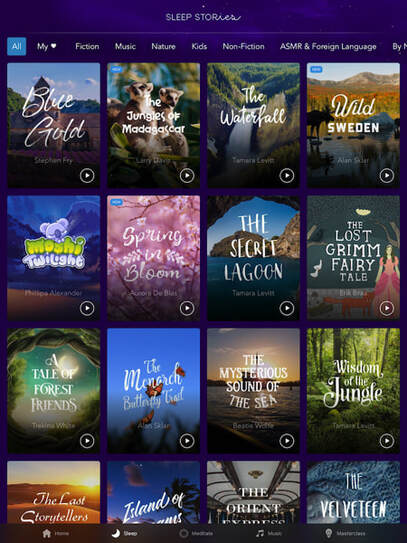 Back in the UK where she lives, Phoebe is known for her books and stories about sleeping in unusual, extreme and wild places. I quite like the fact that Calm didn’t hire a scientist or psychologist to methodically bore you to sleep, but rather a storyteller. “Storytelling is such an old tradition, it’s how knowledge and wisdom has been passed down throughout history,” says Phoebe. But hang on, aren’t you essentially writing stories so boring it puts people to sleep? “As a kid, you didn’t want a boring story, but there’s definitely a technique involved. There can’t be too much action or excitement, and it should take you on a journey, which is why trains, boats, rivers and forests work so well. Feedback suggests that most people fall asleep within five to ten minutes, but I get lots of emails from people around the world wanting to know more about the places I write about.” Places like the lavender fields of Provence, the jungles of Madagascar, the Mississippi River and the forgotten forests of Morocco. There are travel stories about oceans and deserts, safaris and night skies. There are train journeys aboard the Orient Express, the Trans-Siberia, and yes, our adventure aboard The Ghan. We both agree that stories are a far healthier alternative to medication and sleep aids. “These days, we often treat sleep as an inconvenience,” Phoebe explains. “There’s so much going on and instantly available that we can’t switch off, which only adds to the anxiety.” It’s why she turns off her devices at least an hour before bed, keeps her bedroom free of distractions, and is passionate about sleeping in the wild. “When it gets dark, you sleep, and when the sun rises, you wake up. It’s the natural rhythm of our bodies, and it makes you feel calm and rested.” Unlike Phoebe, the very thought of sleeping outdoors, exposed and alone on say, a mountain top, freaks my poor brain out. So I’ll ignore her advice and keep my iPhone handy, ready to load up a Calm sleep story, and let her words inspire a blissful lullaby.
It took three, long hours to get to the temple. An hour of that was figuring out which bus to take, negotiating the ticket, and finding directions to the correct platform. Five people were crammed into a seat built for three, and although there were no live animals, there was a freshly slaughtered chicken. It was hot, it was uncomfortable, it was intense, and it was vivid. This is travel, and this is all worth it. I hike up the hill, and there it is, a beautiful stone temple, glowing in the sun. I take a deep breath, pull out my camera, and then I see them. Over a hundred tourists, wearing name tags, following a red umbrella. Ladies and gentlemen: begin the debate! Travellers carry towels, never iron their clothes, and freak out when there’s a schedule. Tourists stay in nice hotels, look forward to going home, and typically pay the set price. Travellers discard guidebooks, tourists clutch them closely to their chests. Travellers need a holiday when they return home, tourists leave home for a holiday. Or vice-versa. The Traveller vs Tourist is a timeless, heated debate. Many backpackers make proud, public announcements so nobody might confuse them with being a tourist. Many tourists seem compelled to sheepishly justify their package vacation, while others would never dream of leaving the comfort bubble of a tour bus. Never mind that both groups are united in the same purpose – to leave their homes and discover something new. And never mind that tourists don’t seem too bothered by the whole debate in general – it’s usually travellers, sitting in a dive bar, scratching the dirt from under their fingernails, scoffing at the thought of seeing anywhere from the comfort of, dare I say it, a brightly coloured tour bus.
At the root of this inane rivalry is the assumption that one experience is better, more authentic, and more valuable than the other. I love it when I meet “real travellers” and the conversation goes like this: Them: “Have you been to Bolivia.” Me: “Yes, I’ve spent three weeks in the country.” Them: Did you go to [insert obscure destination here]. Me: No, I would have loved to, but focused on [insert second obscure destination]. Them: Oh, then you haven’t seen the REAL Bolivia! Me (under my breath): So many stupid people, so few asteroids. Every single one of us is different, and every single one of us will have a different experience, even if we’re in the same place. Further, by definition, anyone who travels can be called a traveller. Some travellers like comfort, peace of mind with their security, being told where to go, and even what to wear. Some travellers like crowded buses, smelly toilets, sleeping in dorms and bargaining for everything. Seriously, they love this stuff! Judging someone by the experience they choose (with little thought to decision-making factors like budget, time, health, or personal preference) is like judging someone because of the colour of their skin, religion, or personal belief. There, I’ve said it. The old debate is nothing more than thinly veiled racism, which, like all racism, is steeped in ignorance, fear, envy, and several ounces of basic stupidity. Still, I don’t see the argument ending anytime soon. As I watched the busload of Japanese name-taggers descend on my (my!) hard-fought temple, having being comfortably dropped off by their luxury air-conditioned bus, I couldn’t help but feel they had missed out on the best part of the journey. And when I told them what I could expect on the long road home, they wondered why anyone in their right mind would put themselves through such an ordeal. It felt rejuvenating to be independent, but I was jealous as hell of their comfort. There’s no right way to apply ketchup to your fries, scratch an itch, or smile at a stranger. While we can always and should learn from the advice of others, there’s also no right way to see the world. There is only your way.
|
Greetings.
Please come in. Mahalo for removing your shoes. After many years running a behemoth of a blog called Modern Gonzo, I've decided to a: publish a book or eight, and b: make my stories more digestible, relevant, and deserving of your battered attention. Here you will find some of my adventures to over 100 countries, travel tips and advice, rantings, ravings, commentary, observations and ongoing adventures. Previously...
March 2024
Categories
All
|

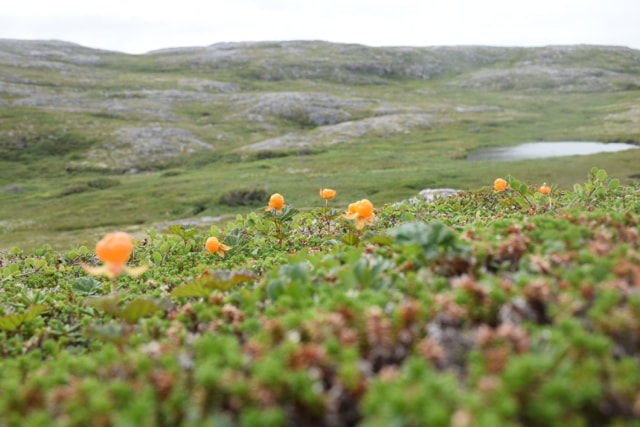
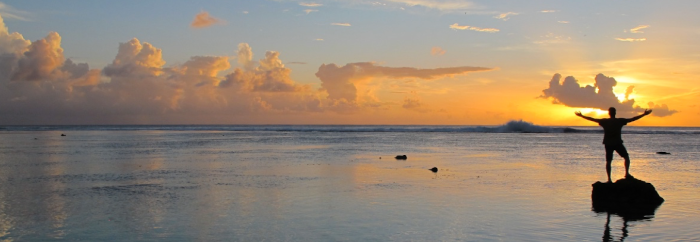
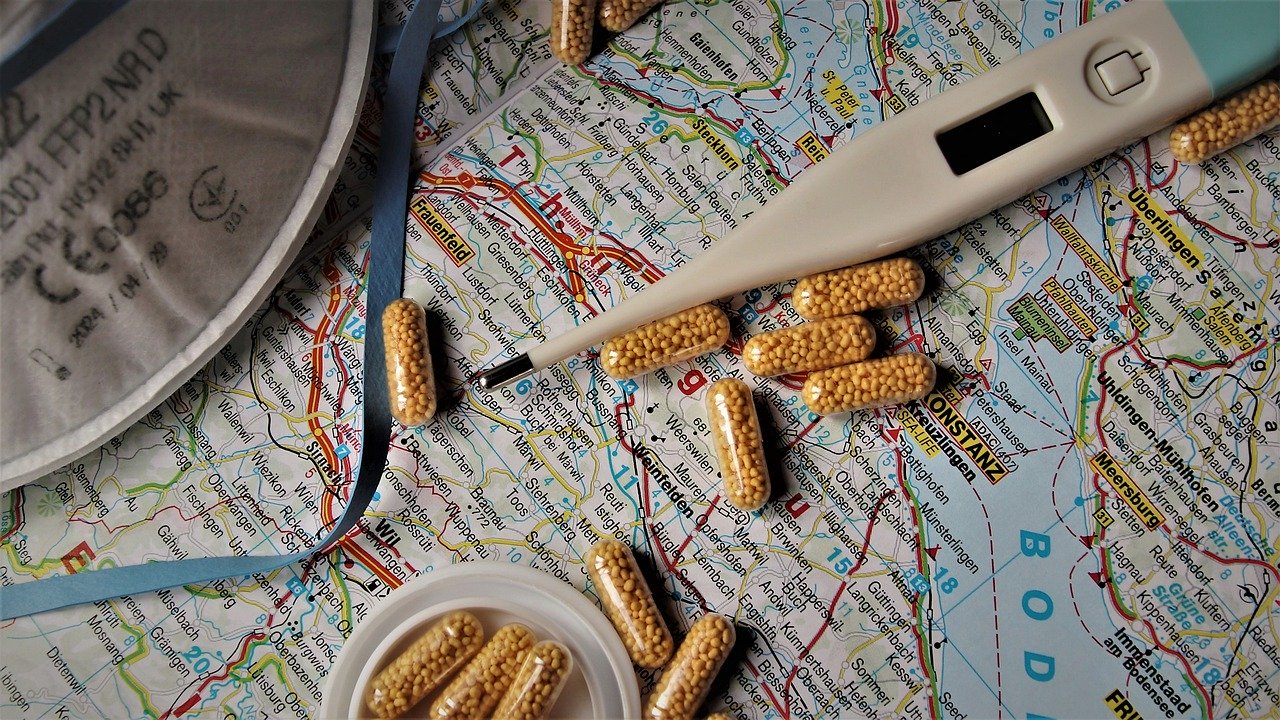
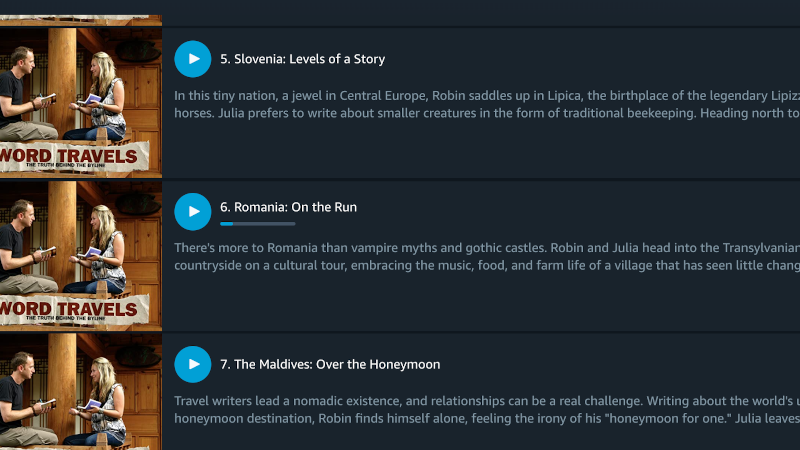
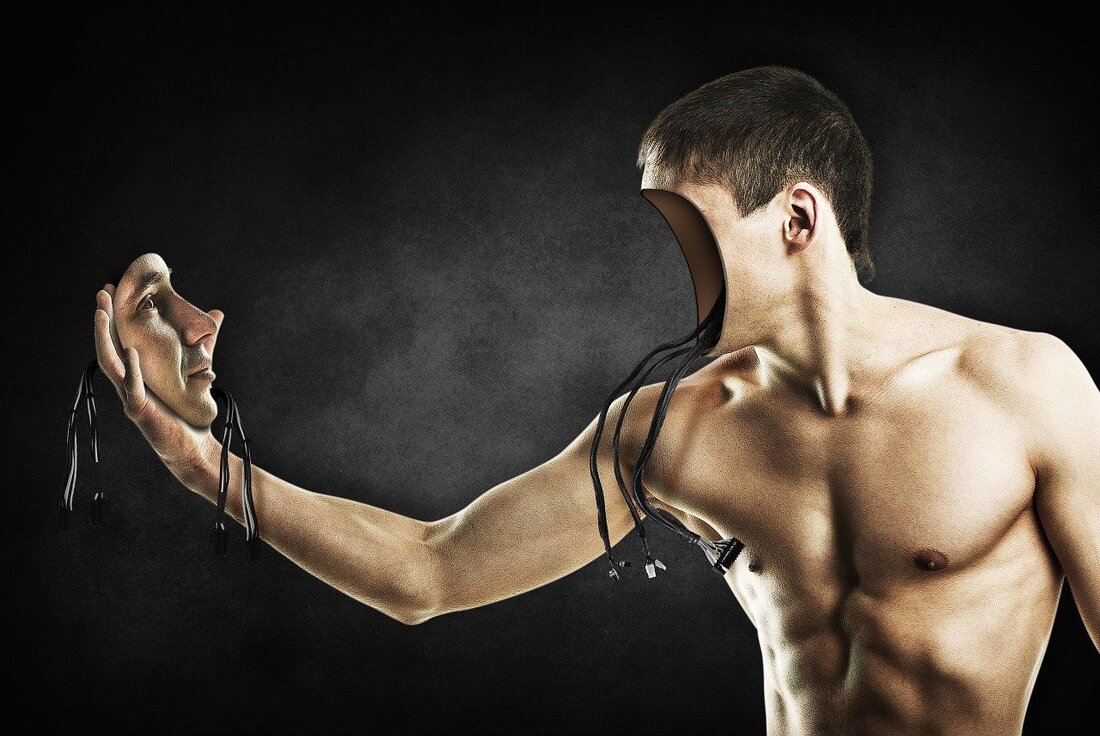
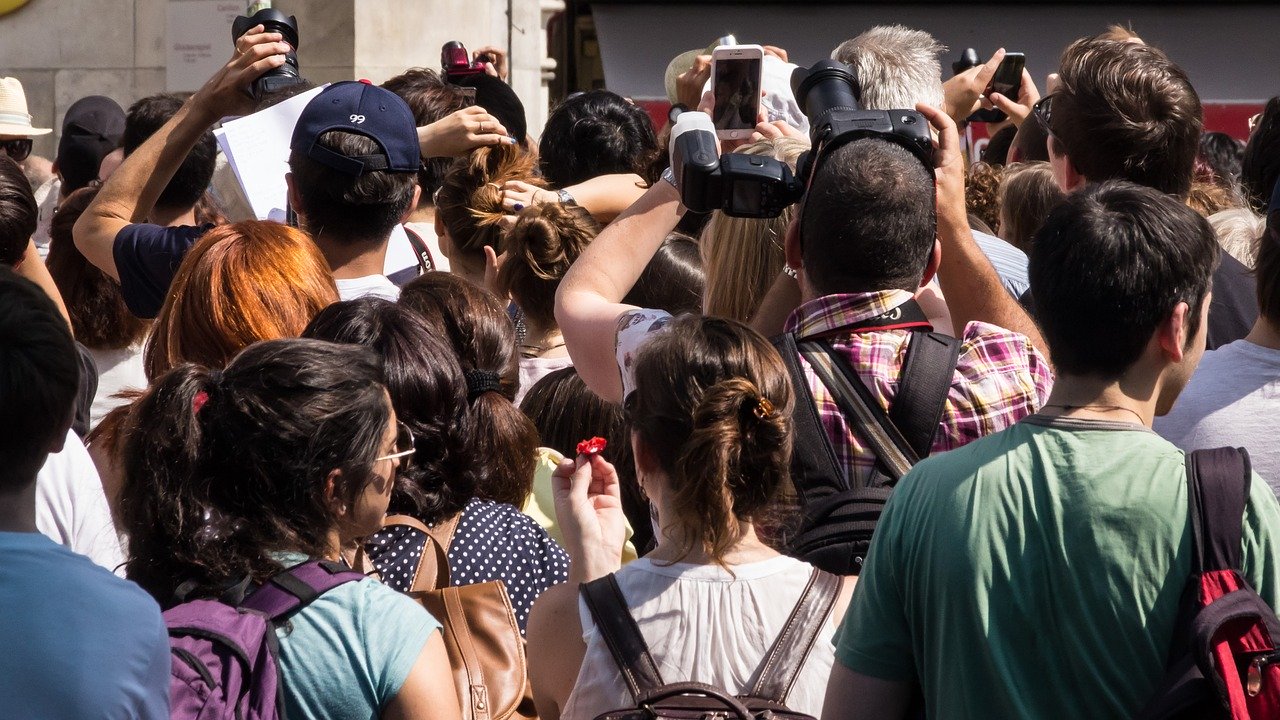
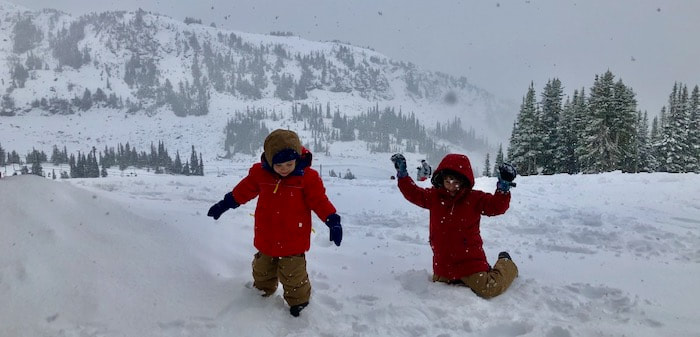
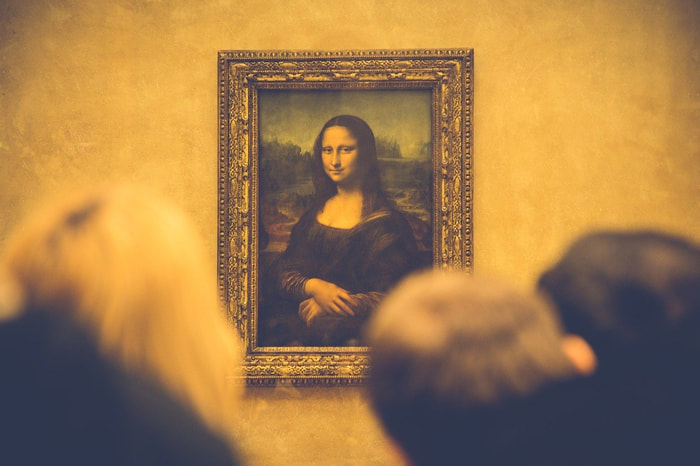
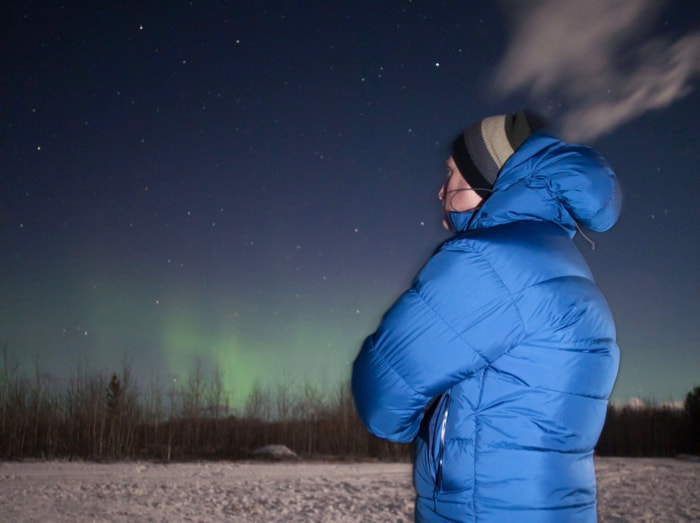
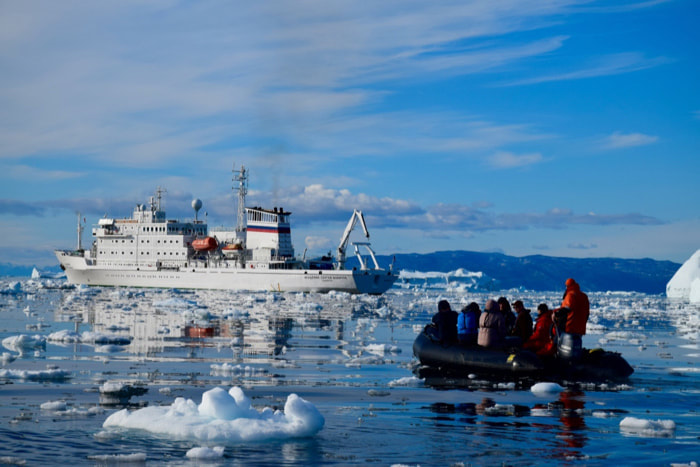
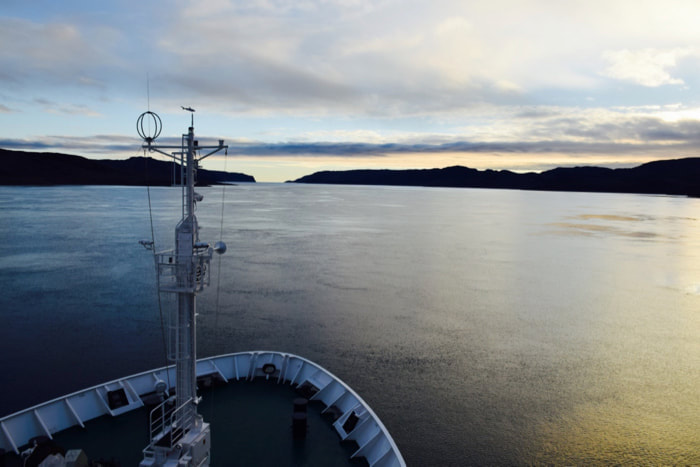
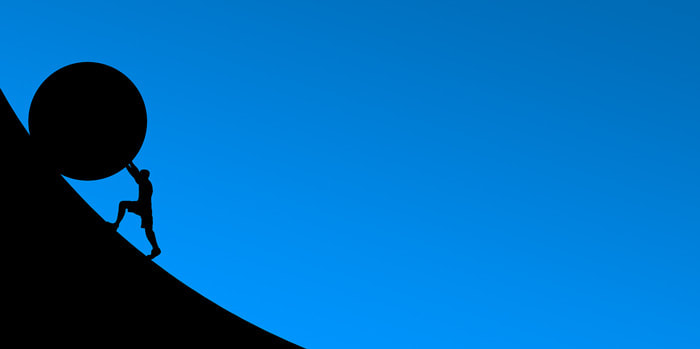
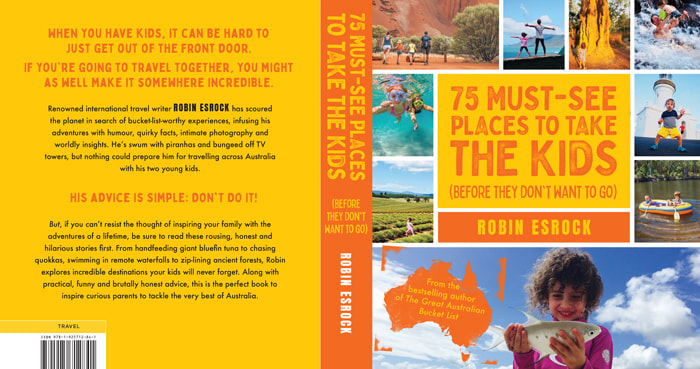
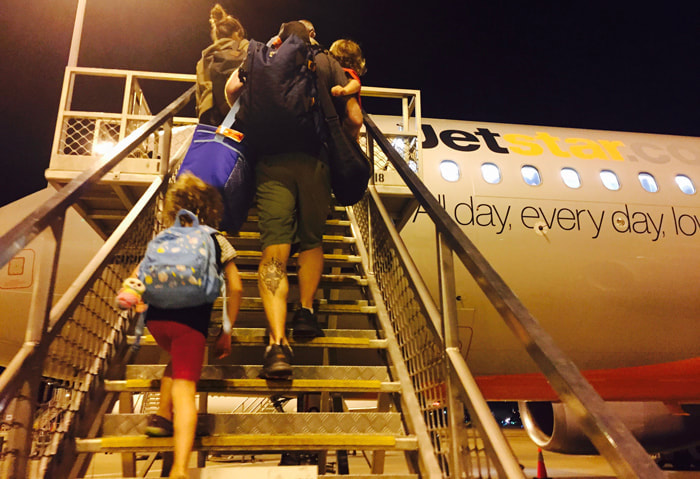
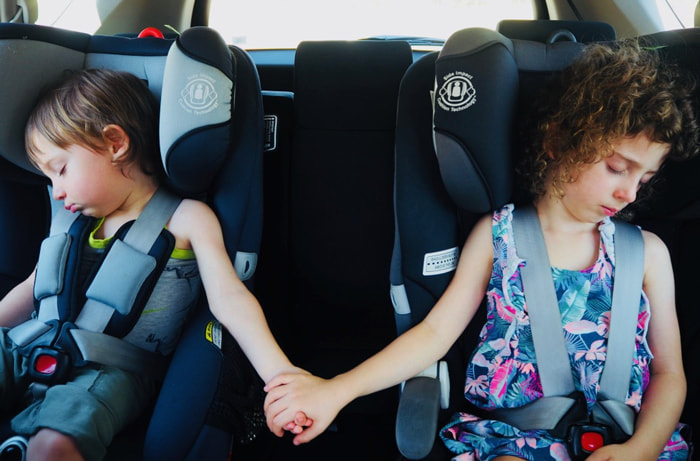
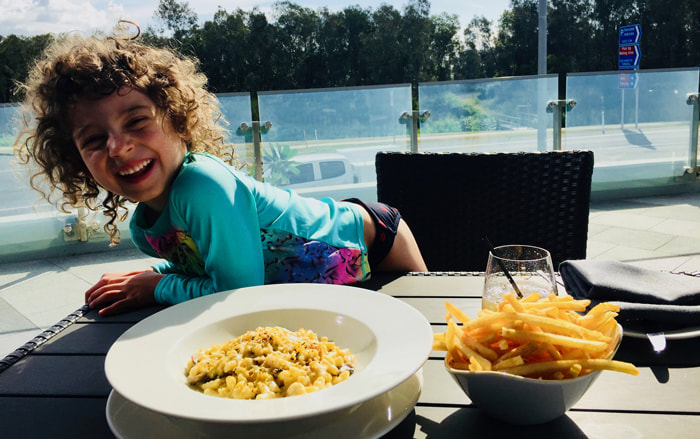
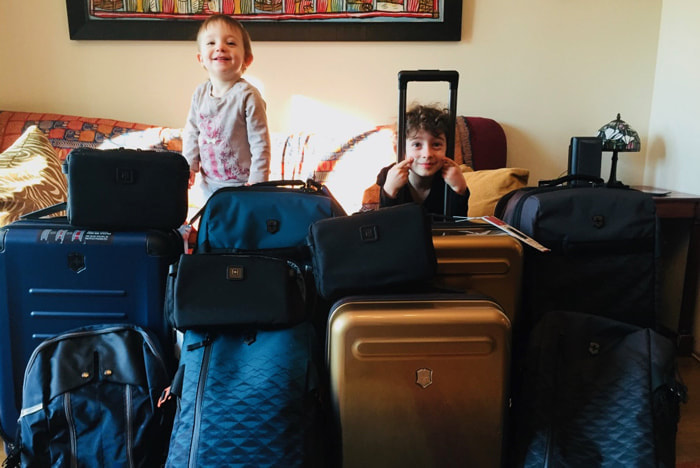
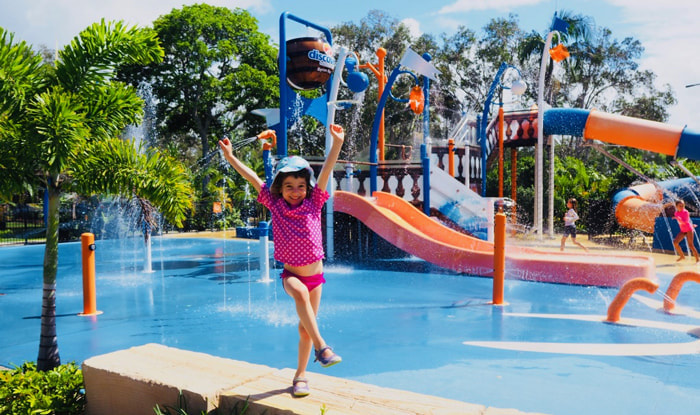
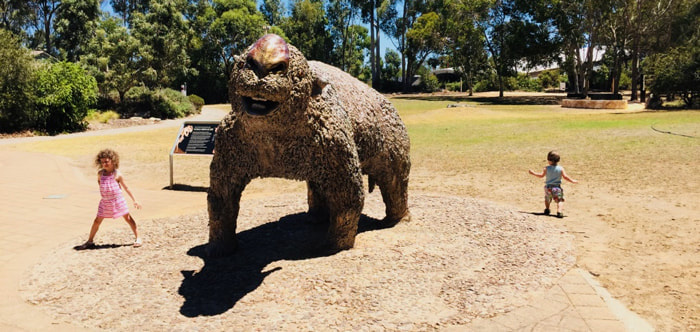




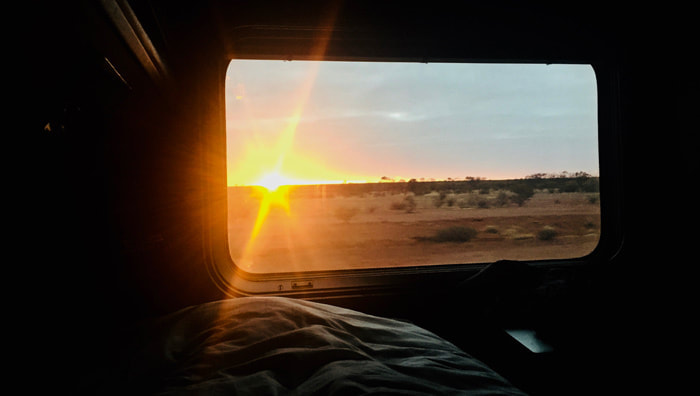
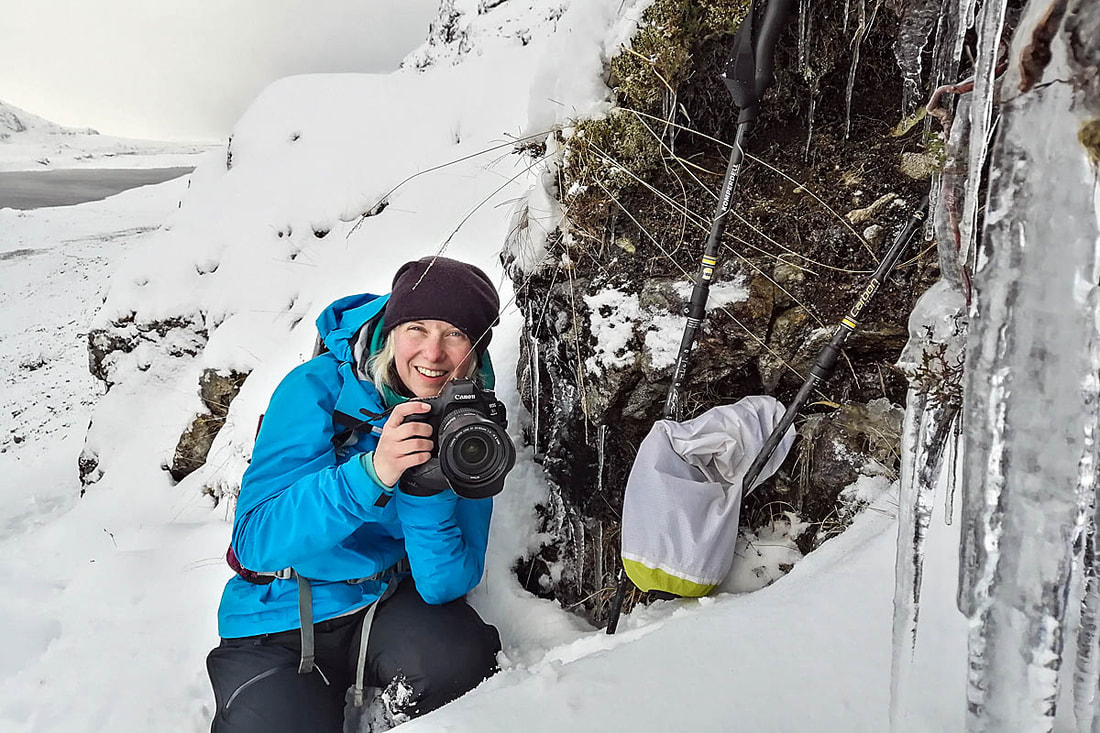
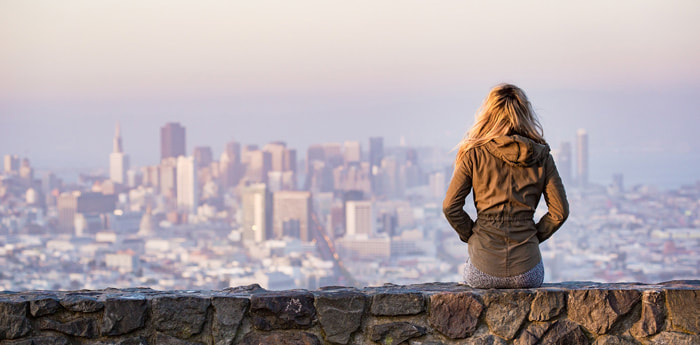
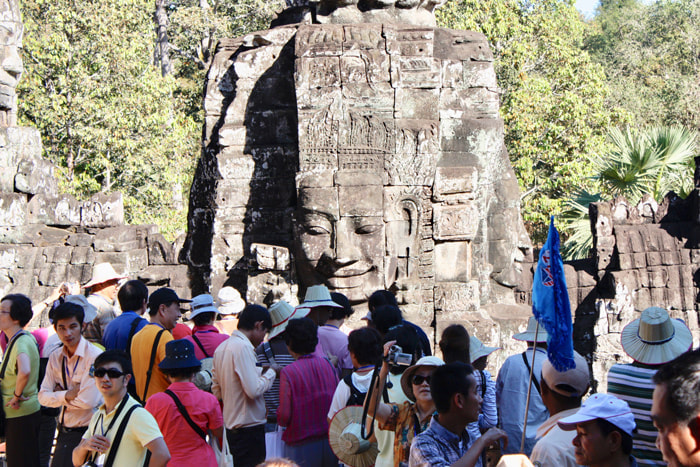
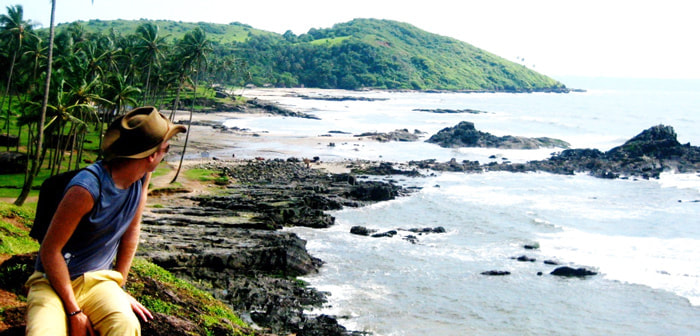
 RSS Feed
RSS Feed

